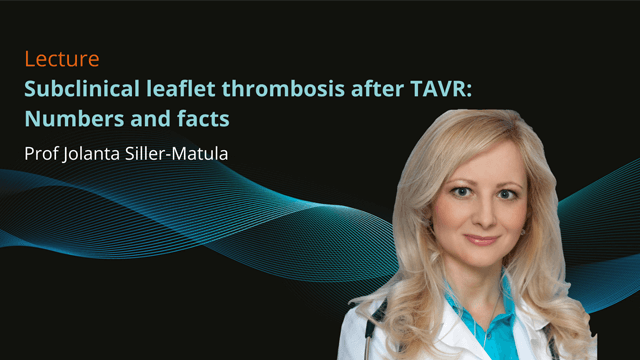Controversies Regarding Subclinical Leaflet Thrombosis After TAVR
Published: 25 February 2021
-
Views:
 1728
1728
-
Likes:
 7
7
-
Views:
 1728
1728
-
Likes:
 7
7
-
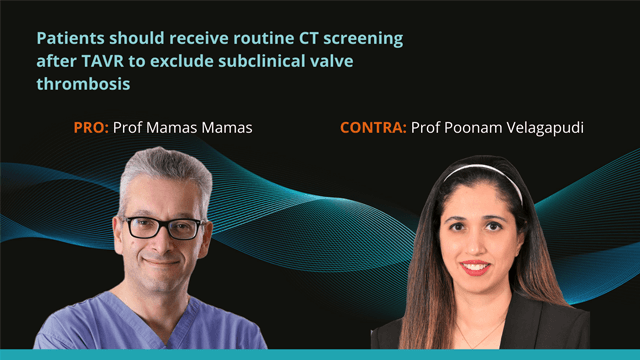 10m 22sPart 2 | Session 1 PRO
10m 22sPart 2 | Session 1 PRO -
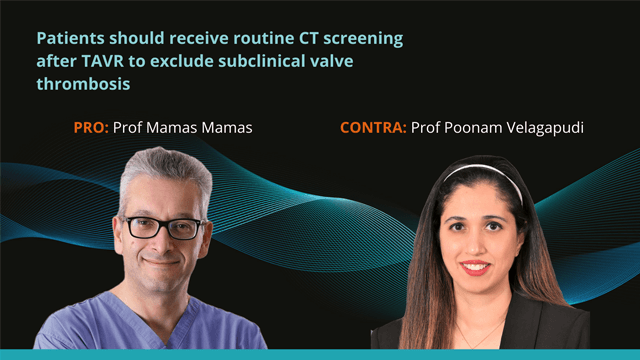 10m 45sPart 2 | Session 2 CONTRA
10m 45sPart 2 | Session 2 CONTRA -
 13m 38sPart 2 | Session 3 Panel discussion & Audience Questions
13m 38sPart 2 | Session 3 Panel discussion & Audience Questions
-
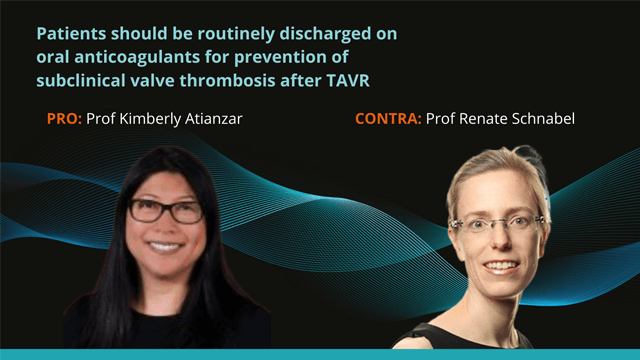 11m 47sPart 3 | Session 1 PRO
11m 47sPart 3 | Session 1 PRO -
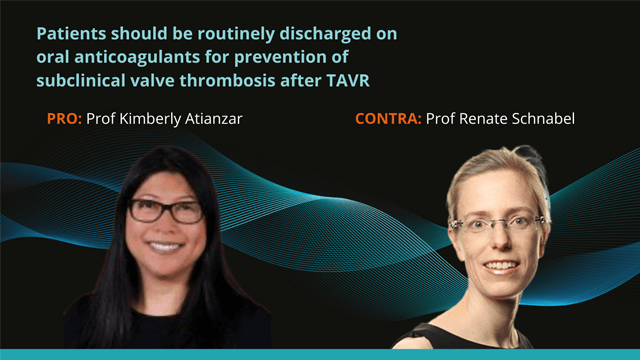 15m 43sPart 3 | Session 2 CONTRA
15m 43sPart 3 | Session 2 CONTRA -
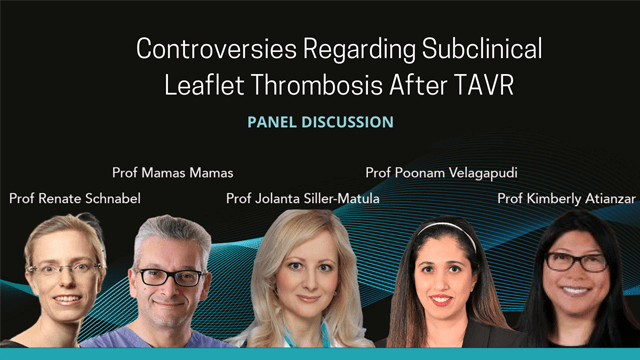 11m 57sPart 3 | Session 3 Panel discussion & Audience Questions
11m 57sPart 3 | Session 3 Panel discussion & Audience Questions
Overview
A substantial number of patients develop a subclinical leaflet thrombosis (SLT) after transcatheter aortic valve replacement (TAVR).
The thrombus forms on the leaflets, which can lead to valve dysfunction and possibly to early valve degeneration. Multidetector computed tomography is the most sensitive imaging technique at detecting SLT.
Patients on antiplatelet drugs are at higher risk to develop SLT as compared to those on anticoagulants. During the live debate, the experts in the field will discuss controversies concerning SLT, including the routine use of oral anticoagulants and CT exams after TAVR.
Learning Objectives
- To learn about the natural history, incidence and clinical implications of SLT
- To learn about the mechanisms that may lead to SLT
- To understand the diagnostic criteria SLT
- To discuss the prevention and treatment options for SLT
Audience
- Interventional cardiologists with focus on TAVR procedures
- Cardiac Imaging specialists (Echocardiography, Computer Tomography)
- General cardiologists
- Specialists interested in management of antithrombotic therapies after TAVR
More from this programme
Part 1
Subclinical leaflet thrombosis after TAVR: Numbers and facts
Part 2
Debate: Patients should receive routine CT screening after TAVR to exclude subclinical valve thrombosis
Faculty Biographies

Jolanta Siller-Matula
MD
Dr Jolanta Siller-Matula is an Associate Professor in the Department of Cardiology at the Medical University of Vienna, Austria. She is an interventional cardiologist specialising in coronary and structural cardiac interventions. She is an expert in thrombosis research with a focus on personalized antithrombotic therapies and authored more than 125 peer-reviewed articles (>4500 citations; h-index: 38). Dr Jolanta Siller-Matula is a leader of a clinical research group with a current focus on stratified approaches aiming at optimizing outcomes after PCI and TAVR.






